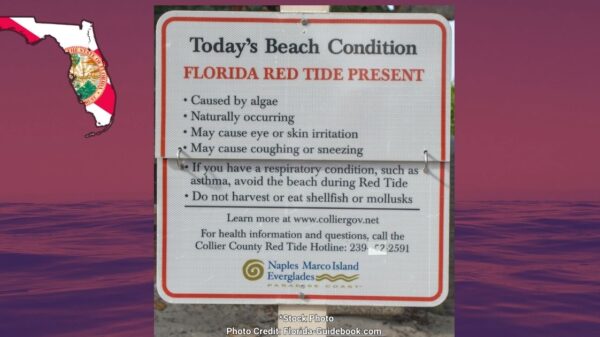This week, state Sen. Jeff Brandes, R-St. Petersburg, and state Rep. Ben Diamond, D-St. Petersburg, introduced a bill “to improve the abatement efforts of imminent hazards caused by phosphogypsum stacks in Florida.”
Both men pointed to the wastewater leak at Piney Point this summer which saw an increase in red tide as the main reason they are championing the proposal.
“Should an imminent hazard exist for a phosphogypsum stack, HB 1339 and SB 1744 require the Florida Department of Environmental Protection to notify the Florida Division of Emergency Management, county emergency management offices, and the board of county commissioners of the county within which the stack is located within 24 hours,” the legislator’s offices noted. “The legislation also directs the Florida Department of Environmental Protection to create and maintain an online database, accessible to the public, that lists all phosphogypsum stacks in the state by county, along with summaries of inspections, imminent hazards, abatement actions, and material violations.”
“Sunshine is the best disinfectant,” said Brandes. “Florida has a history of valuing transparency in government. This is an issue best resolved with transparency and public accountability.”
“To prevent environmental catastrophes like what happened at Piney Point and the red tide bloom in Tampa Bay that followed, we have to be honest with Floridians and the local governments that serve them about the imminent hazards posed by phosphogypsum stacks,” said Diamond. “It is vital that our constituents have as much time as possible to prepare for the potential consequences of these environmental and health hazards. Our legislation will ensure local governments and the citizens of our state can easily access information about these risks before they wash up on our shores.”
The proposal is backed by Florida Conservation Voters.

















